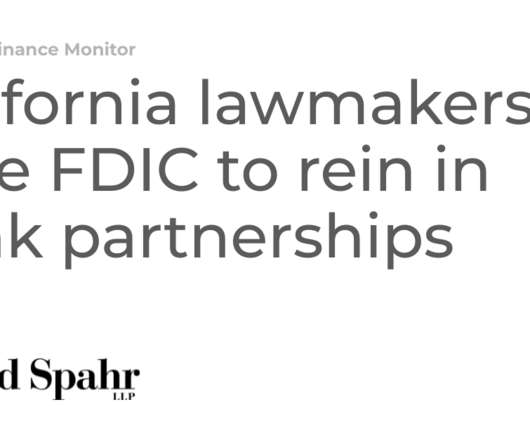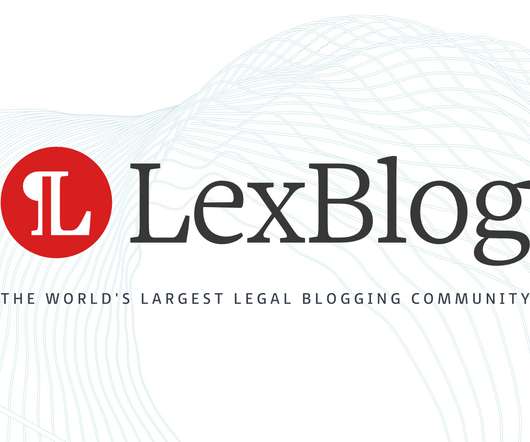Bank in West Virginia is closed by regulators
American Banker
APRIL 3, 2020
First State Bank, which the FDIC sold to MVB Financial, had struggled with profitability and capital levels for several years.

American Banker
APRIL 3, 2020
First State Bank, which the FDIC sold to MVB Financial, had struggled with profitability and capital levels for several years.

American Banker
APRIL 3, 2020
First State Bank, which the FDIC sold to MVB Financial, had struggled with profitability and capital levels for several years.
This site is protected by reCAPTCHA and the Google Privacy Policy and Terms of Service apply.

CFPB Monitor
JUNE 15, 2022
Four Democratic members of the California state legislature recently sent a letter to the Federal Deposit Insurance Corporation (FDIC) urging the agency to take action against FDIC-supervised banks that partner with non-bank lenders to originate high-cost installment loans.

PYMNTS
OCTOBER 4, 2019
Credit Karma is partnering with West Virginia-based MVB Bank on the venture. The bank will handle the funds and will offer FDIC protection up to $5 million. With more than 100 million members around the globe, it made sense for us to jump across the balance sheet with Credit Karma Savings.”.

ABA Community Banking
JANUARY 28, 2025
Also, the FDIC approved a proposed merger of West Virginia, Ohio banks. Cadence Bank in Tupelo, Mississippi, has agreed to buy FCB Financial in Savannah, Georgia. The post Cadence to buy FCB Financial in Georgia appeared first on ABA Banking Journal.

CFPB Monitor
SEPTEMBER 10, 2020
Because CCBank is a state-chartered FDIC-insured bank located in Utah, Section 27(a) of the Federal Deposit Insurance Act authorizes CCBank to charge interest on its loans, including loans to California residents, at a rate allowed by Utah law regardless of any California law imposing a lower interest rate limit.

CFPB Monitor
MARCH 15, 2022
Maryland, New York, North Carolina, Ohio, Pennsylvania, West Virginia, and Colorado. In 2019, California enacted AB 539 which, effective January 1, 2020, limited the interest rate that can be charged on loans of $2,500 to $10,000 by lenders licensed under the California Financing Law (CFL) to 36% plus the federal funds rate.
Let's personalize your content